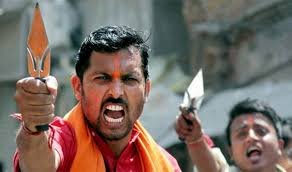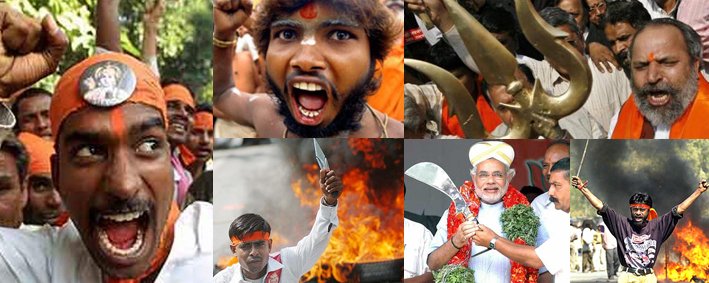- Joined
- Sep 11, 2023
- Runs
- 25,825
It’s time we talk about a growing threat that’s been ignored for far too long: saffron and Hindutva extremism. As the world grapples with the ever-present challenge of extremism, why is there such a lack of attention on this ideology that’s linked to violence, extremism, and intimidation?
The rise of Hindutva, rooted in Hindu nationalism, has not only been a concern for India but is expanding its reach across borders. The Bharatiya Janata Party (BJP) in India has been accused of pushing this dangerous ideology, resulting in the marginalization of minority communities like Muslims and Christians. The violence is real—whether it’s the 2002 Gujarat riots or attacks on religious minorities—Hindutva has fueled deep divisions and escalated hate-driven crimes.
But here’s the thing: this ideology isn’t just limited to India anymore. Hindutva groups are operating globally, in countries like the United States, United Kingdom, Australia, and Canada. These groups aren’t just organizing locally; they’re spreading hate speech, supporting divisive politics, and even funding extremism. It’s not just a distant issue—it’s right on our doorstep. In the U.S., these groups have reportedly channeled millions of dollars into influencing mainstream politics, sanitizing their ideology, and stifling opposition. This enables them to grow in strength while suppressing any meaningful criticism.
The troubling part? The global response has been muted. Countries, driven by their strategic interests in India, seem to be turning a blind eye to these human rights violations. The silence has only empowered the Indian government and Hindutva groups, allowing them to act with impunity. This isn't just a matter of political discourse; it's a matter of human rights, equality, and tolerance. We should be acknowledging the threat, but instead, it's being brushed under the carpet.
Even bodies like the Financial Action Task Force (FATF), which recognize the dangers of ethnically or racially motivated extremism, have been sluggish in addressing Hindutva extremism specifically. It's about time we demanded concrete actions from such international organizations to hold these groups accountable.
We need to start talking about this, raise awareness, and demand action from our governments. It's time to prioritize human rights over political expediency and recognize the global nature of Hindutva extremism. This threat is real, and it’s time we stop ignoring it.



The rise of Hindutva, rooted in Hindu nationalism, has not only been a concern for India but is expanding its reach across borders. The Bharatiya Janata Party (BJP) in India has been accused of pushing this dangerous ideology, resulting in the marginalization of minority communities like Muslims and Christians. The violence is real—whether it’s the 2002 Gujarat riots or attacks on religious minorities—Hindutva has fueled deep divisions and escalated hate-driven crimes.
But here’s the thing: this ideology isn’t just limited to India anymore. Hindutva groups are operating globally, in countries like the United States, United Kingdom, Australia, and Canada. These groups aren’t just organizing locally; they’re spreading hate speech, supporting divisive politics, and even funding extremism. It’s not just a distant issue—it’s right on our doorstep. In the U.S., these groups have reportedly channeled millions of dollars into influencing mainstream politics, sanitizing their ideology, and stifling opposition. This enables them to grow in strength while suppressing any meaningful criticism.
The troubling part? The global response has been muted. Countries, driven by their strategic interests in India, seem to be turning a blind eye to these human rights violations. The silence has only empowered the Indian government and Hindutva groups, allowing them to act with impunity. This isn't just a matter of political discourse; it's a matter of human rights, equality, and tolerance. We should be acknowledging the threat, but instead, it's being brushed under the carpet.
Even bodies like the Financial Action Task Force (FATF), which recognize the dangers of ethnically or racially motivated extremism, have been sluggish in addressing Hindutva extremism specifically. It's about time we demanded concrete actions from such international organizations to hold these groups accountable.
We need to start talking about this, raise awareness, and demand action from our governments. It's time to prioritize human rights over political expediency and recognize the global nature of Hindutva extremism. This threat is real, and it’s time we stop ignoring it.



Last edited:








